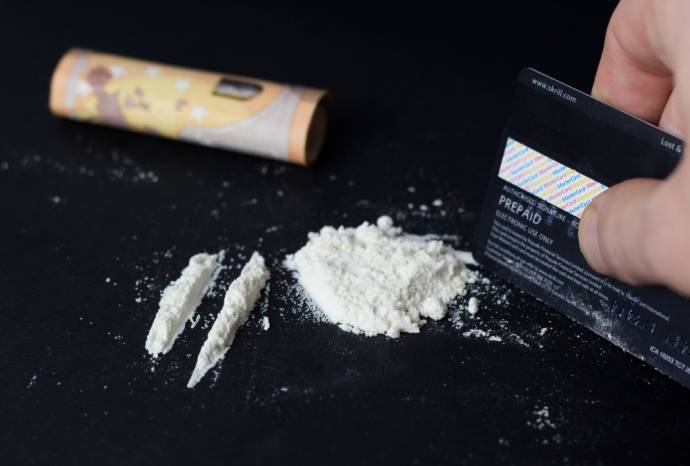STA, March 20, 2018 – Dragan Tošić, chief defendant in the Balkan Warrior drug trafficking trial, was given 16 and a half years in prison on Tuesday as the Ljubljana District Court found 13 of the 15 defendants guilty in a retrial.
Tošić, whom the court found to have operated as the leader of the drug-trafficking ring with ties to Serb drug lord Darko Šarić, was found guilty of drug trafficking and racketeering.
Found guilty of the same counts were co-defendants Dragan Beljkaš, who was given the same sentence as Tošić, and Jakob Remškar, who received 11 years and a half.
Three other defendants (Mirzet Lucević, Suzana Remškar and Marko Bublić) were found guilty of drug trafficking and racketeering, and a further six were found guilty of drug trafficking charges.
A thirteenth defendant was found guilty of drug trafficking and production, while the remaining two defendants, Dejan Zupan and Sandra Udrih, were acquitted after being sentenced in the first trial.
The judgement is not yet final and both the prosecution and defence counsels announced appeals. If confirmed, the time already served would be calculated in the defendants' prison time.
Judge Andreja Sedej Grčar said the pair were acquitted because the prosecution failed to properly define concrete circumstances of the alleged act. "Clearly, the defendants cannot defend themselves in such a way."
The judge described the ring formed by the defendants as a strictly hierarchical organisation. "Each member had a strictly defined role. Not all of them knew each other."
Such an organisational structure "is suitable in case of potential discovery by law enforcement authorities because members knew each other only in as much as required by their tasks".
The sentences handed down by the panel of judges were lower than those sought by the prosecution. The latter sought a total of almost 126 years for all 15 defendants, including almost 20 for Tošić.
Of the six convicted of drug trafficking, the highest sentence, of six years, was given to Miralem Lucević.
Peter Khermayer was given ten years and Mirzet Lucević received six and a half for drug trafficking and racketeering.
Having been convicted of 15 years in the first trial, Marko Bublić was given another 14 months for drug trafficking and racketeering and sentenced to a combined sentence of 16 years and a month.
Found guilty of drug trafficking and production, Boštjan Kopčič was sentenced to four years, while the others convicted received between three years and eight months and one year and a month.
The judge said that the defendants transported large amounts of cocaine from South America to Italy in 2008 and 2009 with the plan to sell it on.
They tried to launder the money obtained from their activities through their legal business operations and through real estate purchases.
Many of the defendants lead lives of luxury despite low declared income.
The panel of judges believe it had been proven that Tošić had sent 1.8 million euro to South America through four couriers.
The court ordered confiscation of the defendants' phones, portable computers and SIM cards of mobile operators in different countries.
The court ordered detention for Beljkaš and Remškar, and house arrest for Tošić, Khermayer and Mirzet and Miralem Lucević, arguing that the defendants had attended all the 128 main hearings.
Having sought custody for the six main defendants for flight risk, the prosecution indicated it would appeal against the two acquittals and probably against the custody decision.
Otherwise, prosecutors Blanka Žgajnar and Mateja Gončin were pleased with the judgement.
"We've lived to see a conviction," Žgajnar said, adding that they would likely also appeal against the length of sentences for some of the defendants.
Appeals were also announced by the defence lawyers of Tošić and Beljkaš, with Tošić's lawyer Janez Koščak, commenting that he had expected his client to be acquitted for the most part.
In the original trial, which started in 2014, most of the 17 defendants of the time walked free following the suppression of wire-tapping evidence obtained in Slovenia and Serbia.
The suspects were arrested in May 2010 in a police sting mounted in cooperation with Serbian law enforcement authorities and the US Drug Enforcement Administration.
Today, the judge noted that the court had also admitted evidence obtained in Serbia, which she said was legal.
She said the ring had planned to expand into Austria after the drug bust in Uruguay and after their ring was dismantled in Slovenia.







